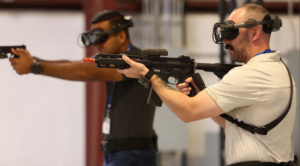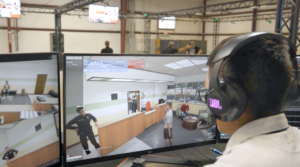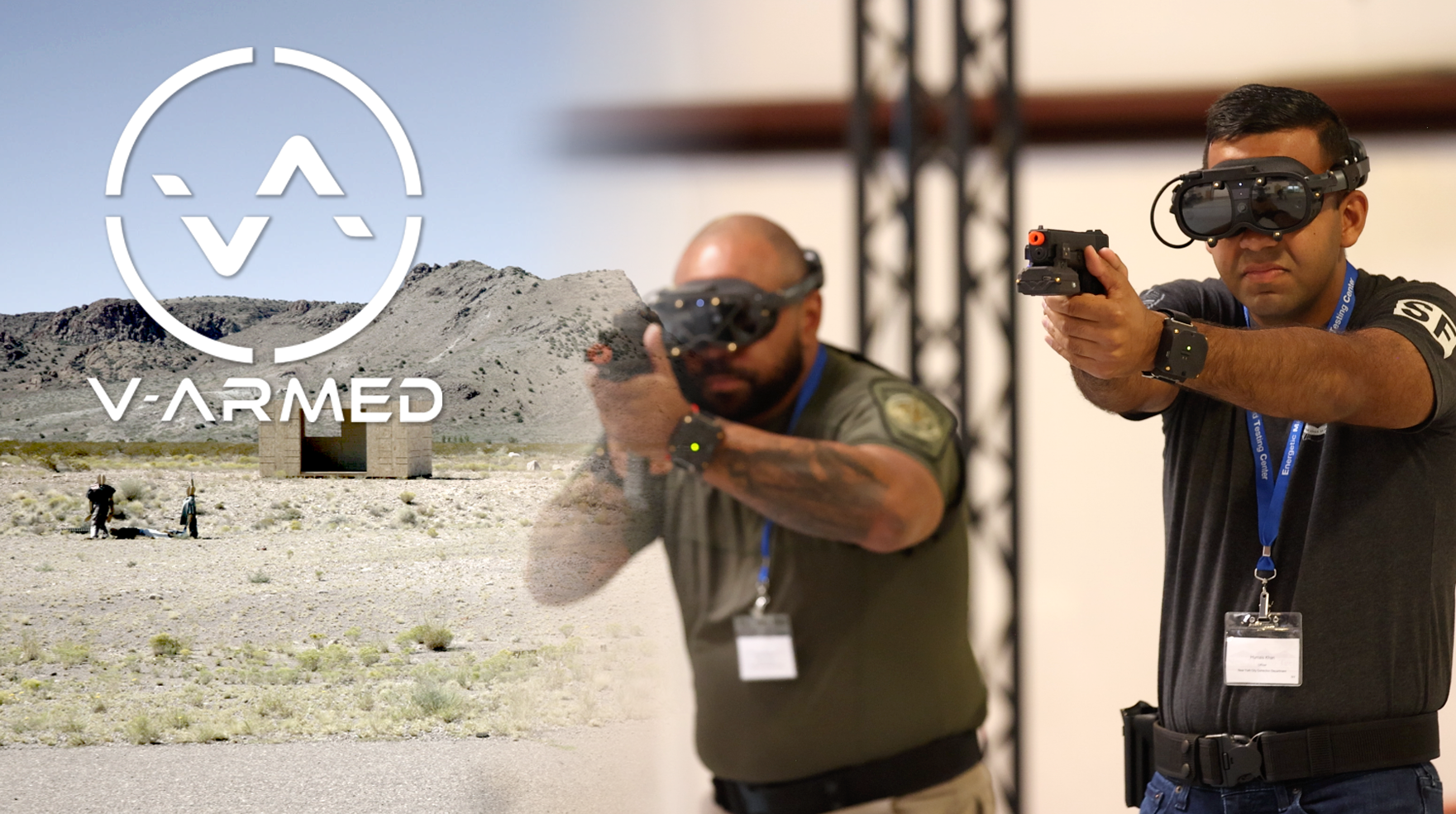Set deep in the rugged desert of Socorro, New Mexico, a training revolution is exploding – literally. As part of the New Mexico Tech Institute, the Energetic Materials Research and Testing Center (EMRTC) prepares first responders from across the U.S. to mitigate threats related to explosive devices. From car bomb demonstrations to explosive drone training, EMRTC is one of the only organizations in the country focusing on this increasingly critical public safety threat.
“We get our first responders, whether it’s medical police, fire, exposure to explosives and how to deal with the pitfalls of what’s going happen during an explosive event and how to mitigate and take care of problems they might run into.” Kyle Haley, Associate Director of EMRTC training.

Having been a leader in this field for decades, it should come as no surprise that the New Mexico Tech team would invest heavily in Virtual Reality training as part of its readiness coursework. In early 2024, they did just that: installing a 3,500 square foot V-Armed virtual training system specifically designed to provide law enforcement with the tools they need to prevent and protect against a wide variety of explosive threats.
An unfortunately increasing circumstance across the country is the development and use of home-made explosive devices (HMEs). In collaboration with the V-Armed team, EMRTC has produced a wide variety of VR training assets like devices, assembly materials and precursor chemicals for students to identify safely in virtual environments so they can be prepared when they encounter them in the field.
A key course EMRTC offers at the virtual reality training facility is the ILERSBA curriculum, which focuses on identification and strategy to safely handle or de-escalate suicide bombing attacks. Law enforcement officers from across the nation come to Socorro to participate in this course, and groups of up to eight students and role players can participate in VR simultaneously to practice the principals of their training in a safe and controlled environment.

Associate Director Haley adds, “I always say ‘your first time shouldn’t be your first time.’ They get to make their mistakes in these wide (VR) areas that normally you just couldn’t do here in Socorro. We’re able to input cities, offices, movie theaters, highways where normally you wouldn’t be able to do training.”
The New Mexico Tech EMRTC team hopes to continue expanding their VR curriculum and resources over time so they can share this increasingly critical training to law enforcement agencies all over the country.



